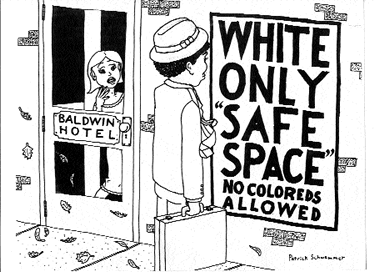

Editorials
Administration Making Progress
These pages rarely treat Oberlin College’s administration with kid gloves. More often than not there are valid reasons behind the criticisms leveled against the College in the form of either student letters or this newspaper’s editorials. We must now make room for the possibility that maybe, just maybe, the College is finally beginning to listen.
College ombudsperson Yeworkwha Belachew is moderating a dialogue tonight among the conflicting parties in the Zeke and campus gender issues dispute. Belachew has, since her assumption of the ombudsperson assignment, been a major resource for student concerns. Dean of Students Peter Goldsmith will, indeed, hold a series of brown bag lunch discussions open to the entire student body, as was suggested in the contentious Senate meeting last November. Health Service Director Laura Hieronymus, in a letter to the Review last week, highlighted the awareness of Student Health to student concerns and the actions they are taking to improve service. These are all good things: may they continue as such.
The College’s work is, of course, not over. Legitimacy is a never-ending process, and the recent actions outlined above are only part of a small beginning. There is still a widespread perception on this campus of an inattentive, uncaring administration that is all too happy to sell us down the river to the highest-bidding evil multinational corporation, so long as the trustees are happy. This probably isn’t true. But nonetheless, this view (or some approximation of it) is the prevalent one on campus.
So, to the administration –– good job. Keep up the good work, do more of it, do it better, do it more often, do it more loudly. Whatever it takes. Most people at Oberlin feel very strongly about this place, and many are definitely open to loving it here. That should be some good motivation.
Think, Then Speak
Sometimes, what the Oberlin student body needs more than anything else is a collective deep, slow breath. This is one of those times. The controversy that began when Zeke was changed to co-ed housing for Fall 2001 more than two weeks ago has yet to abate, and the Review’s incorrect crediting of the author of a Vagina Monologues piece three weeks ago has launched a vicious back-and-forth of letter-writing and name-calling. This campus is a stressful enough place as is; there’s no need for excess grief. Especially with midterms coming up. And that awful sickness still going around. And the never-ending cold weather.
Let’s get down to the nitty-gritty facts here: we’re all Obies. This is a pretty self-evident observation, but sometimes –– especially inside the bubble –– we forget what that actually means. It means, first of all, that for whatever reason, we all at some point agreed on at least one thing: that we wanted to come to Oberlin. This is a pretty significant agreement. It means that a) we wanted to come to Ohio, and b) to Oberlin, Ohio.
For a moment, discard the political term “diversity” and use the dictionary definition: “difference.” There is, indeed, much diversity at Oberlin –– there are a lot of different people here, a lot of different kinds and types and colors and sizes of people. In the real world, these things too often make a difference in the way people are treated. At Oberlin –– argue what you will about whether diversity is “celebrated” –– difference is rarely a determining factor, especially in the things that really matter. Sure, there’s room for improvement, but Oberlin as a campus is most definitely a safe space in ways that almost nowhere else in the world can or will be.
Think about it this way. Some time after graduation, you are walking down the street and see a sweatshirt half a block off with the familiar white-on-blue or yellow-on-red lettering. What do you do? You say, “Excuse me, did you go to Oberlin?” or something to that effect. And it doesn’t matter if they played lacrosse, or the cello, or majored in sociology, or hung out at the Java Zone, or ate in Harkness or whatever. It matters that they’re an Obie, and so are you, and you’ve just found one other person in this huge world that you’re immediately connected to, that you’re automatically compatible with. Remember that the next time you’re about to call one of your fellow-Obies a coward, or a racist, or the Antichrist in print.
The Review maintains a universal inclusion policy for campus letters in order to promote freedom of speech and freedom of expression, and would never seek to curb those rights that we all hold so dear. But there is a not-so-fine line between the kind of free speech that facilitates dialogue and just being mean. For the kind of intelligent, thoughtful college student who is supposed to inhabit this campus, the distinction should not be a hard one.
Editorial Corner

Is gender-based fear any more justified?
Cartoonist’s Note:
I mean to compare Baldwin’s women-only “Safe Spaces” to segregation in the South. I’m not sure how valid a comparison this is, but it’s the best metaphor I can think of. I hope this willl help generate constructive dialogue.
– Patrick Schwemmer
![]()
Copeland Typifies White Racism
Cayo-Cotter Out of Line in Zeke Criticism, Savage Says
Coach New Refutes Arguments Against Muska Article
Dominguez Says Dolan Meetings Just a First Step
Prof. Copeland is Out of Touch
Hazen, Pierson Argue Review Edit
Students: China's Human Rights Record Misleading